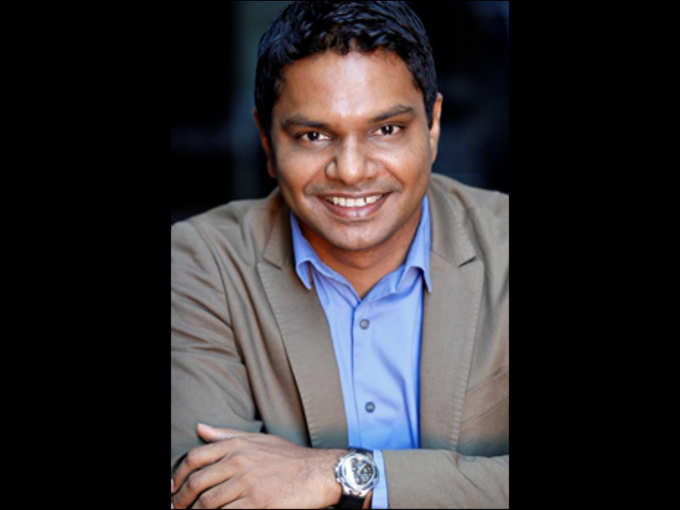 For YPO member
For YPO member Spirituality is not something that readily comes to mind when thinking about the core principles of a family business. But, for the Sri Lankan family business Eswaran Brothers, ideas beyond materialism, say family members, are an important driving force for its global businesses.
“The business goes beyond just making money,” says Subra Eassuwaren, the third generation family member helping to run the company, which has at its heart the production and export of tea. “Our seven principles are central to everything we do. I don’t know any other business that has these sort of principles behind them.”
In the mid-2000s, the Colombo-based company looked back at its history and attempted to define its core values. It came up with seven principles - determination, hard work, honesty, courage, love, patience, and spirituality. Subra reckons that these principles weren’t just about some remote mission statement, but they were essential in helping the business to grow and become one of the biggest tea exporters in the world. Today, employing 2,500 people, Eswaran exports to more than 50 countries. It is one of Sri Lanka’s best known companies and its various tea brands are increasingly known to consumers in Japan, Russia, the US and much of Africa.
But, as Subra says, it’s not all about the money. “We see the business as something that is a force for good - that looks after the people working in it, that looks after the community living around it, and that looks after the environment it functions in.”
The importance of stakeholder values at Eswaran goes back to its founder VTV Deivanayagam Pillai who, from nothing, founded the business in 1943. Orphaned at the age of 12, Deivanayagam Pillai came to to Sri Lanka from southern India and worked as a shop boy until World War Two presented him with an opportunity to own a shop. “When the Japanese started bombing Colombo many shop owners sold up and left, but for my grandfather this represented a huge opportunity to acquire his own business” says Subra. Deivanayagam Pillai was able to buy a grocery shop at a knockdown price, and from there was able to expand and buy other similar shops.
From the very beginning, says Subra, Deivanayagam Pillai placed a lot of emphasis on looking after his workers, which has been a guiding principle of Eswaran ever since. Subra’s grandfather had nine children, the eldest of which was D. Eassuwaren, who went on to incorporate the business under the name Eswaran Brothers in 1963. “My grandfather’s business was essentially grocery and commodities trading. What my father did was diversified the company into exports,” says Subra. Although tea remains the core to the family business, Eswaran Brothers is part of a bigger conglomerate called VTV group of companies, which is involved in a host of sectors, including plastics, paper recycling and textiles.
The second and the third generation have made a number of changes over the years to ensure the businesses all remain competitive. These include focusing on adding value to the existing products by doing their own packaging and creating Eswaran’s own products.
“By focusing as much on adding value and making our own products have kept us a little bit safer from commodity fluctuations,” says Subra. “Tea is very much of a weather and market-driven commodity, and during the last 10 years there has huge fluctuations in its price. By being a branded product and much closer to the consumer we've been able to ride out some of these fluctuations much better."
Changes were also made to its ownership and governance of the business. According to Subra, up until mid-2000 there were a lot of cross family shareholdings, and some family members were bought out of their holdings in the business. Governance structures were implemented, which, according to Subra, wouldn’t look out of place in a listed business. “The tea business is run as if we were listed on the stock exchange. There are three non-executive directors, my father is chairman and there are very clear reporting lines. There is also an audit and remuneration committee.”
Subra’s journey into the family business seemed to be predetermined at an early age, but not necessarily through pressure from the family. “All of us grow up with the family business. It was family life in many ways.” Studying law at Oxford University in the UK, Subra said that by the end of the first year he was sure he didn’t want to study law. “But I did know I wanted to join the family business.”
After graduating from Oxford, Subra went on to work for local banks for two years before joining the family business. “The banking experience was very useful to understand how international trade works.” Joining in 2002, he worked in the textile side and then joined the tea business, where he continues to work today as vice chairman with his father as chairman.
Subra says his Oxford contacts together with membership of the Young Presidents Organisation, a membership group of leaders all under the age of 40, have helped him tremendously in his running of the business. “Through YPO I can network with peers around the world and tap into people with similar lines of thought.”
Still relatively young at 39, Subra is sanguine about the prospects of the family business. “I’m sure that the philosophy that has been at the heart of the business since 1943 will continue to drive our success in the years ahead.”
Markets for Eswaran’s products will fluctuate, but one thing that is likely to be certain is that the company won’t need any spiritual inspiration to achieve its goals in the years ahead.
(The interview was taken by David Bain of Family Capital reproduced by YPO)
